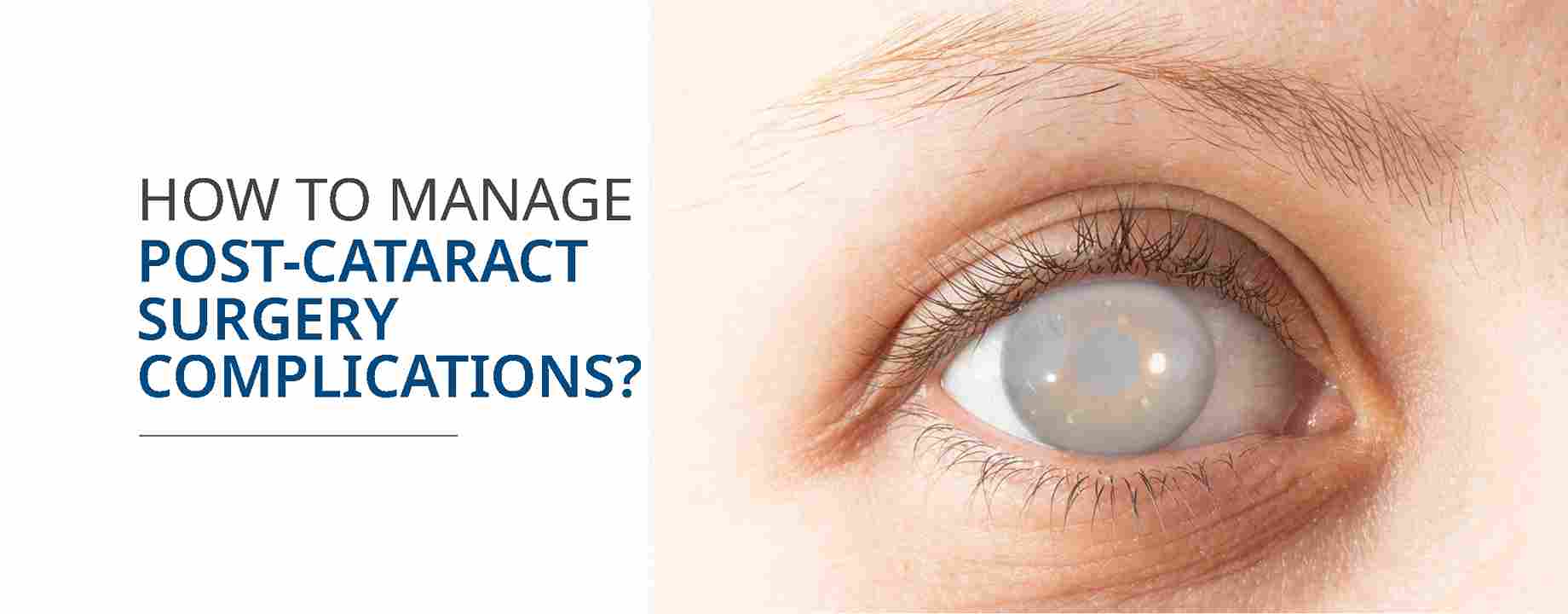- +91 9321883463
- drruchikaeyeclinic@gmail.com
- Mon - Fri: 9:00 - 18:30


Cataract Surgery and Your Vision: How to Manage Post-Surgery Complications
Cataract surgery is a common and highly effective procedure that restores vision for millions of people worldwide. However, like any surgical procedure, it carries a risk of complications. While most cataract surgeries are successful and result in improved vision, it’s essential to be aware of potential post-surgery complications and how to manage them effectively. In this article, we will discuss some common complications that can arise after cataract surgery and provide guidance on how to navigate through them to ensure optimal vision outcomes.
Inflammation and Infection
Inflammation and infection are potential complications that can occur after cataract surgery. While surgeons take precautions to minimize the risk, it’s important to be vigilant. Following the surgery, your ophthalmologist will prescribe anti-inflammatory and antibiotic eye drops to prevent these complications. It’s crucial to strictly adhere to the prescribed medication regimen and follow proper hygiene practices, such as washing hands before touching the eyes. If you notice any unusual redness, pain, or discharge in your operated eye, contact your doctor immediately.
Posterior Capsule Opacification
Posterior Capsule Opacification (PCO), also known as secondary cataract, is a common complication that can cause blurred vision after cataract surgery. It occurs when the thin, clear membrane behind the artificial lens becomes cloudy over time. The treatment for PCO is a simple and painless laser procedure called YAG laser capsulotomy. During this outpatient procedure, a laser is used to create a small opening in the cloudy capsule, allowing light to pass through and restore clear vision. If you experience a gradual decrease in vision months or years after your cataract surgery, consult your ophthalmologist, who can diagnose and treat PCO effectively.
Dislocated Intraocular Lens
In some cases, the implanted artificial cataract lens may become dislocated or misaligned after cataract surgery. This can cause blurry or distorted vision. If you experience sudden changes in your vision, such as double vision or shadowing, consult your ophthalmologist immediately. Surgical intervention may be required to reposition or replace the dislocated lens and restore visual clarity. Regular follow-up visits with your ophthalmologist and promptly reporting any visual changes can help identify and address this complication early on.
Dry Eyes
After cataract surgery, some individuals may experience dryness and discomfort in their eyes. This is usually temporary and can be managed with artificial tears or lubricating eye drops. Avoid rubbing your eyes, as this can exacerbate dryness and potentially cause infection. If dry eyes persists or becomes severe, consult your eye care professional, as there may be underlying causes that require further treatment.
Conclusion
Cataract surgery by Specialist Cataract Surgeon is generally a safe and successful procedure that improves vision for countless individuals. However, it’s essential to be aware of potential post-surgery complications and how to manage them effectively. By closely following your doctor’s instructions, taking prescribed medications, and promptly reporting any changes in your vision, you can minimize the impact of complications and achieve optimal visual outcomes. Remember, regular check-ups with your ophthalmologist are crucial for long-term eye health. If you have any concerns or questions after your cataract surgery, never hesitate to reach out to your eye specialist doctor for guidance and support.
